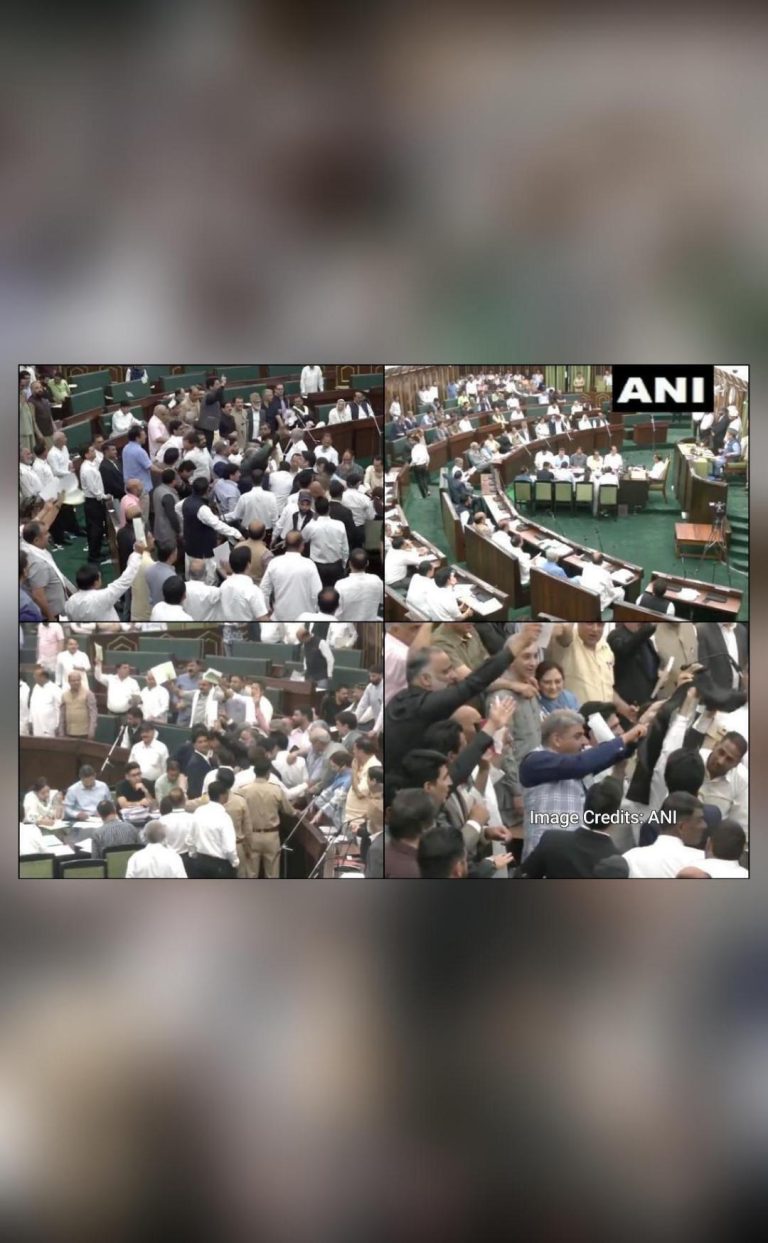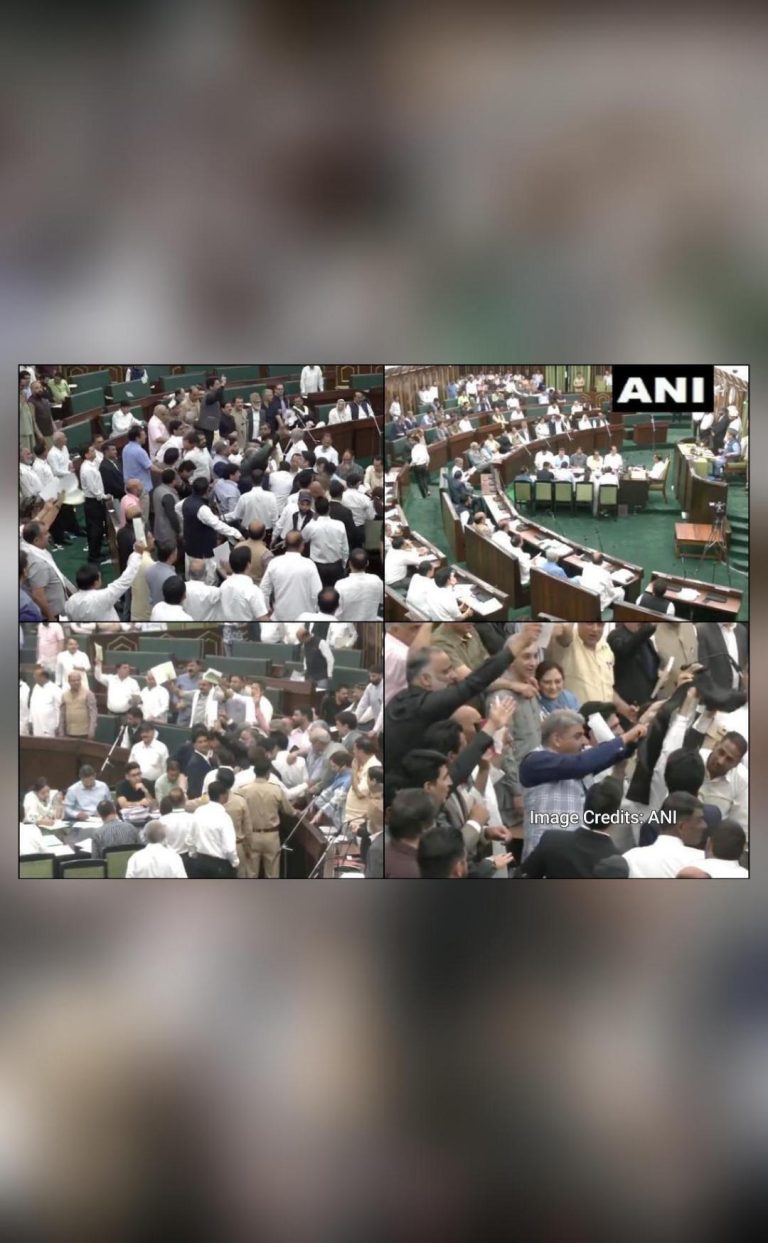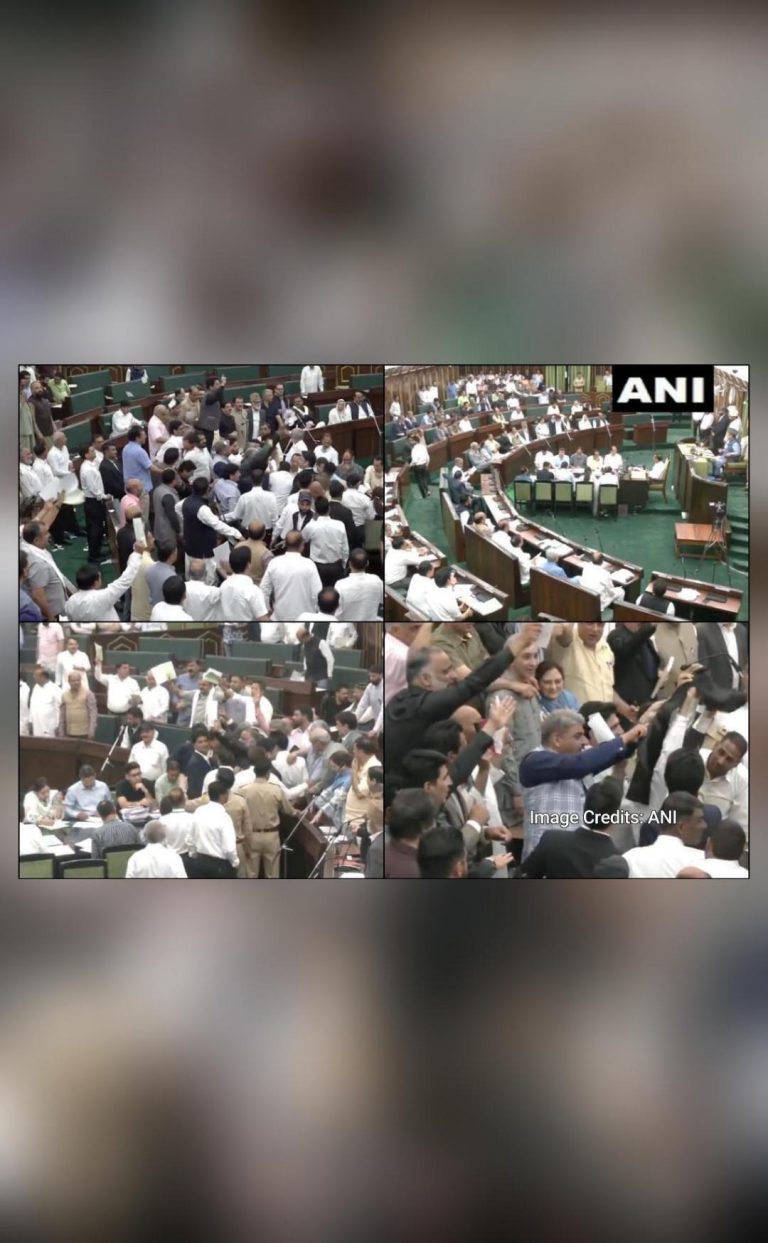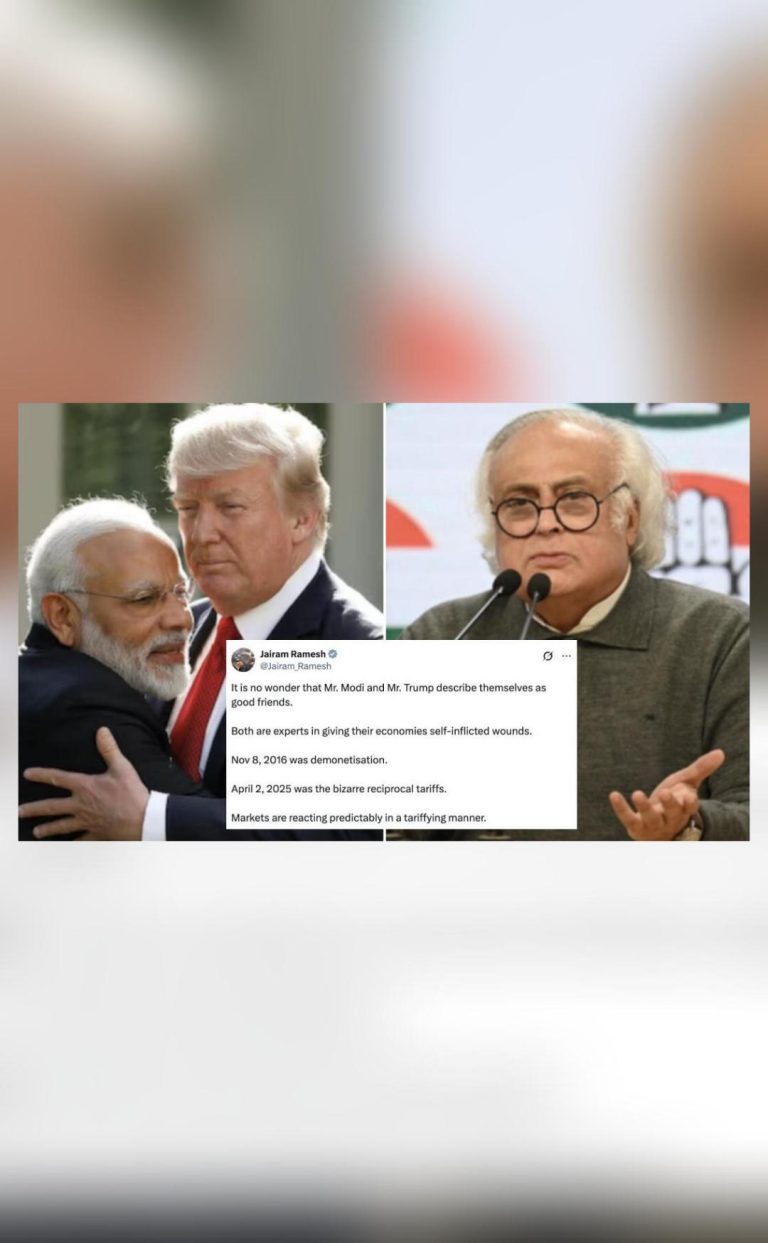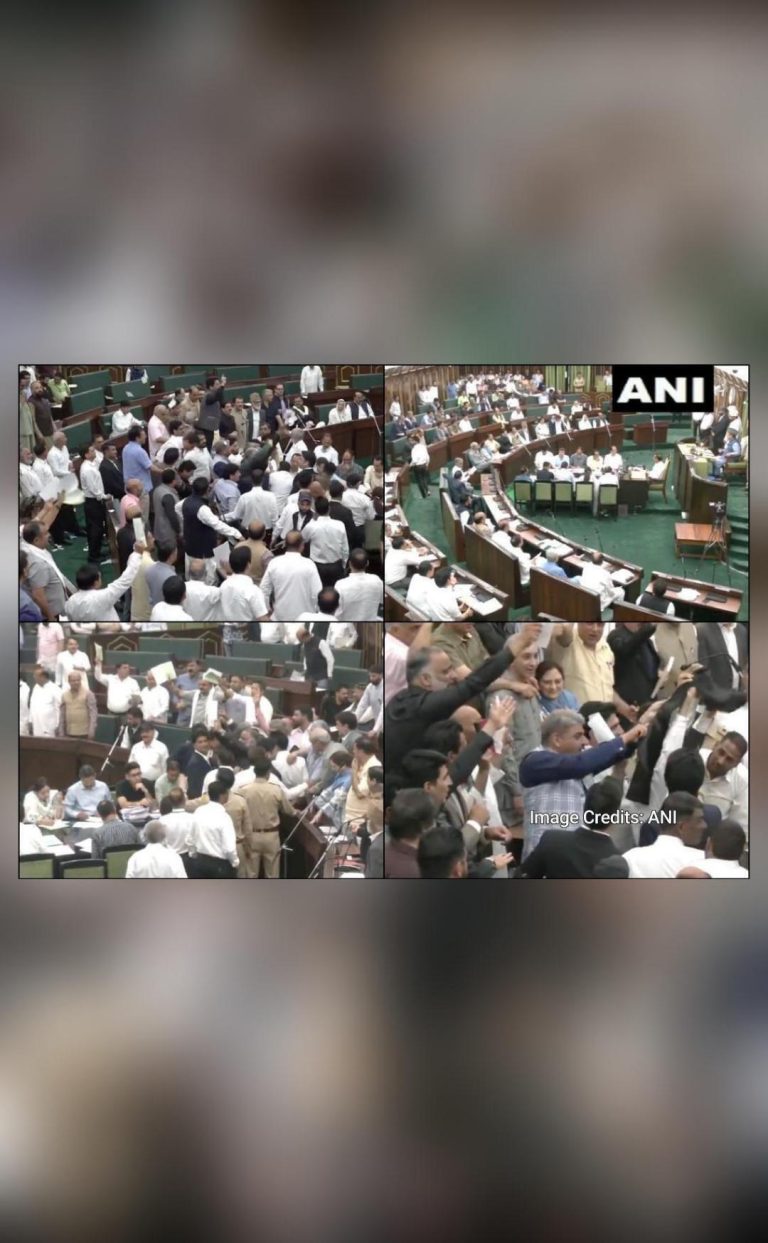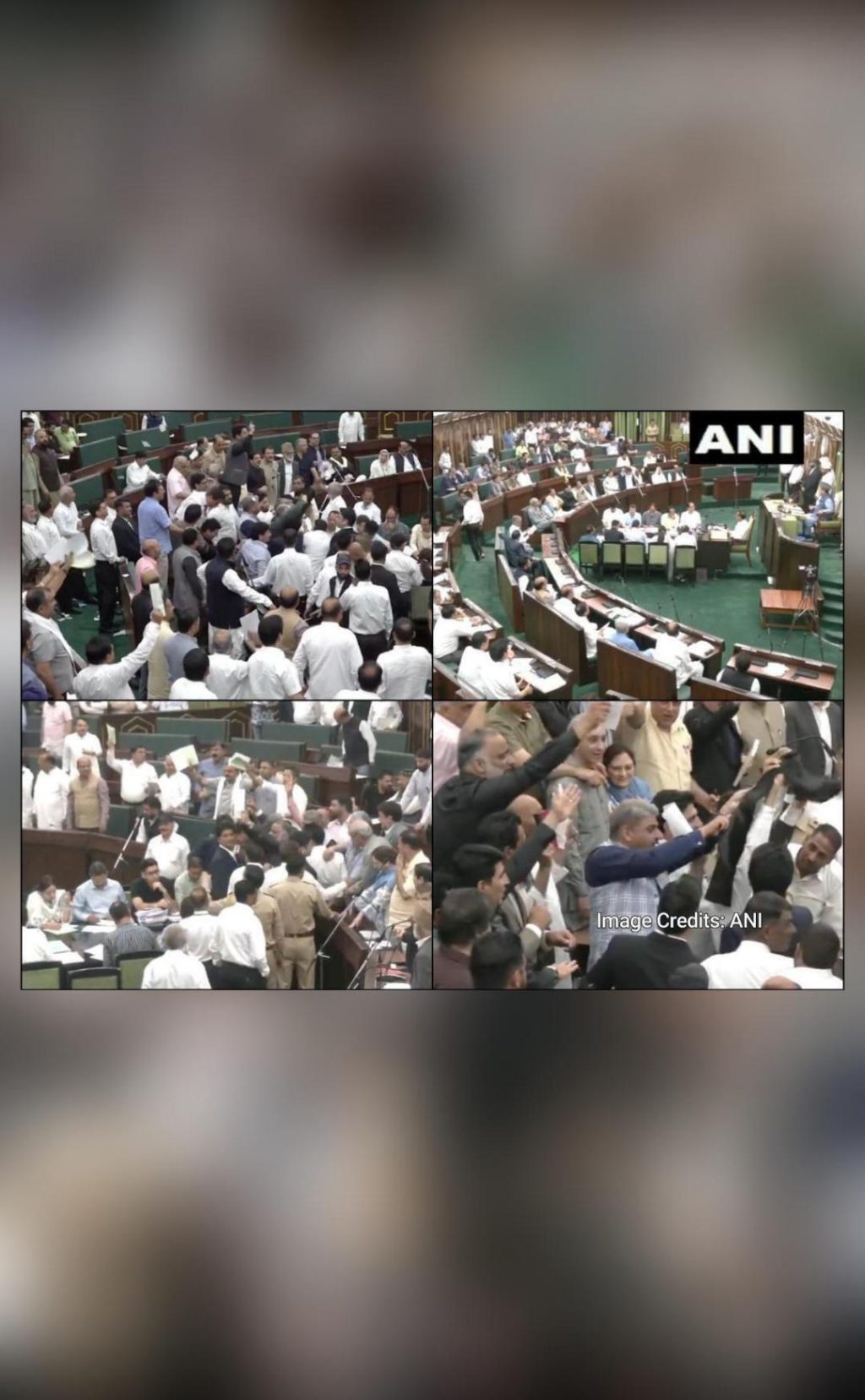
Title: Jammu & Kashmir Assembly adjourned amid uproar over Waqf Act
The Jammu and Kashmir Assembly on Monday witnessed a massive uproar after Speaker Abdul Rahim Rather denied an adjournment motion on the Waqf Act, following which the House was adjourned. The commotion began when National Conference MLAs moved a motion to adjourn the Question Hour to discuss the controversial Waqf Act, which has been a point of contention among various political parties and communities in the state.
The National Conference MLAs, led by party president Farooq Abdullah, argued that the Waqf Act was a matter of great importance and needed to be discussed in the House. They claimed that the act was anti-Muslim and would harm the interests of the Muslim community in the state. The party’s MLAs demanded that the Speaker grant an adjournment motion to allow for a discussion on the issue.
However, the Bharatiya Janata Party (BJP) also protested and demanded that the Question Hour be held as scheduled. The BJP MLAs argued that the Waqf Act was a state-specific issue and did not require a discussion in the Assembly. They claimed that the act was aimed at protecting the rights of the Waqf properties and that the Muslim community would benefit from it.
The Speaker, Abdul Rahim Rather, denied the adjournment motion, stating that the Waqf Act was a law passed by the state government and did not require a discussion in the Assembly. He also warned the MLAs that any further disruption of the proceedings would be taken seriously.
The denial of the adjournment motion sparked a fierce debate in the House, with both the National Conference and the BJP MLAs accusing each other of being biased and trying to stall the proceedings. The Congress MLAs, who were not present in the House, also issued a statement condemning the denial of the adjournment motion and demanding that the Waqf Act be discussed in the Assembly.
The Waqf Act, which was passed by the state government in March, aims to protect the rights of the Waqf properties, which are religious endowments that generate income for the benefit of the Muslim community. The act also provides for the establishment of a Waqf Board to manage the Waqf properties and ensure their proper utilization.
The controversy surrounding the Waqf Act has been brewing for some time, with various political parties and communities in the state expressing concerns about its implications. The National Conference, which has been a strong critic of the act, claims that it is anti-Muslim and will harm the interests of the Muslim community. The BJP, on the other hand, has supported the act and argues that it is necessary to protect the rights of the Waqf properties.
The adjournment of the Jammu and Kashmir Assembly on Monday has once again highlighted the deep divisions within the state’s political establishment on the issue of the Waqf Act. While the National Conference and other opposition parties continue to demand a discussion on the issue, the BJP and the government remain firm in their stance that the act does not require a discussion in the Assembly.
The controversy over the Waqf Act is just the latest in a series of political storms that have rocked the Jammu and Kashmir Assembly in recent months. The Assembly has been adjourned several times in the past few months due to disagreements between the government and the opposition parties over various issues.
As the political parties in the state continue to bicker over the Waqf Act, it remains to be seen how the controversy will be resolved. Will the government be able to push through the act, or will the opposition parties be able to stall its implementation? Only time will tell, but one thing is certain – the controversy over the Waqf Act has once again highlighted the deep divisions within the Jammu and Kashmir Assembly and the need for greater dialogue and understanding between the state’s political parties.
